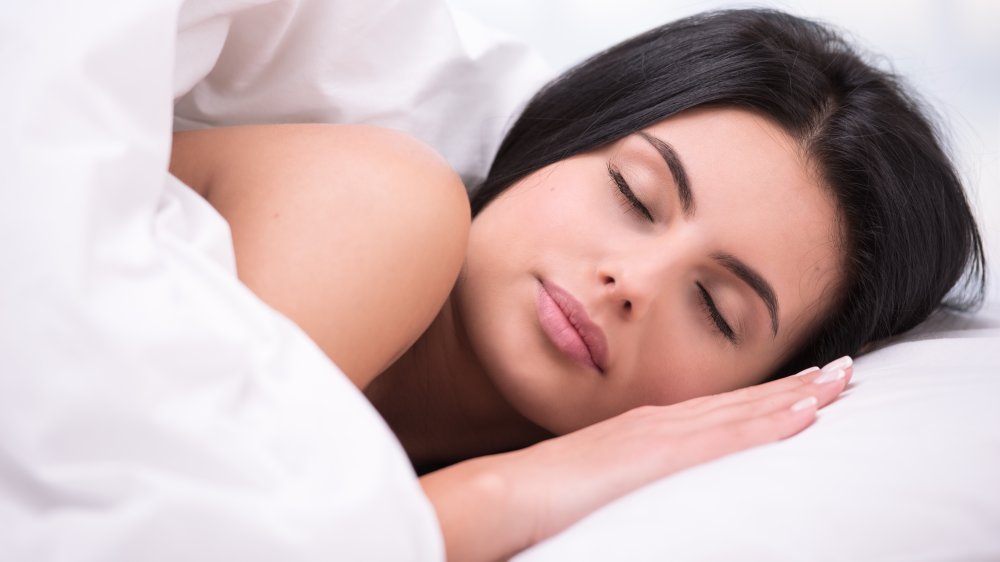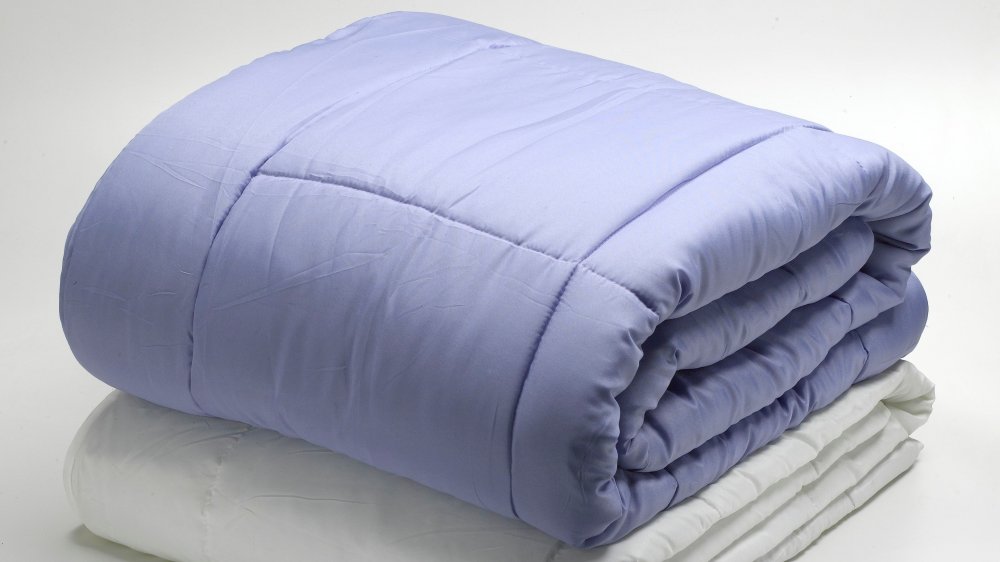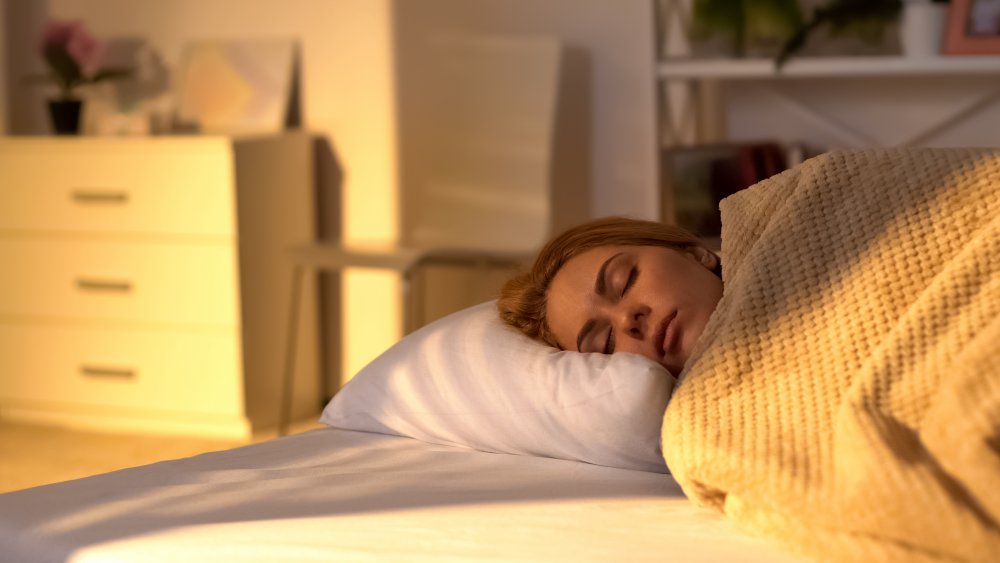The Truth About Weighted Blankets
Sleep may come naturally in nature, but it is a fact that anxiety-ridden humans need help getting rest from time to time. It's obviously not good for our bodies when we don't get the sleep we need, and in fact, we've invented a whole range of things to help us along on our quest to get a good night's sleep. OTC medications like melatonin occupy one end of the spectrum, while noise machines and apps that deliver different sounds and different sound colors occupy the other end. But what happens when the problem doesn't involve falling asleep, but staying asleep, as is the case for some folks?
Enter the weighted blanket, which WebMD says is a longtime sleep solution for both adults and children who have autism spectrum disorders or may suffer from anxiety. But thanks to clever marketing by weighted blanket manufacturers like Gravity Blankets, the weighted blanket has become The New Big Sleep Thing for anyone struggling to stay asleep.
How does a weighted blanket work?
A weighted blanket is exactly what it says it is — a blanket made heavier by adding materials like plastic pellets that range from 4 to 25 pounds (depending on the weight of the person). In theory, sleeping under a weighted blanket tricks your mind into thinking you're being hugged or swaddled, which you sort of are, because your body feels deep pressure by lying under the weight that typical light filler doesn't deliver. "Being hugged is a very powerful stimulus. When you're hugged you feel more secure," Irina Zhdanova, CEO of ClockCoach tells NBC News. She says the extra weight also makes it more difficult for you to move, and it is therefore more difficult for you to wake yourself up while you sleep.
Do weighted blankets really prevent insomnia?
That all sounds great... but do weighted blankets really work? The honest answer is we don't truly know, because as WebMD points out, most of the research on the weighted blanket and how well it works has been paid for either by the industry, or by different blanket makers themselves. One industry study says 31 people who suffered from insomnia and were given a blanket slept more calmly after two weeks' use. In another study involving 32 adults, 63 percent said they were less anxious and 78 percent liked using the weighted blanket as a way of calming down.
So the stories out there are all first-hand accounts of how well these blankets work, and if you're still thinking of giving it a try, Zhdanova suggests going with a lighter blanket that's about 10 percent of your body weight. But she also warns that a weighted blanket isn't an option if you have sleep apnea or snore, because any extra weight on you could make your sleep breathing condition worse.


